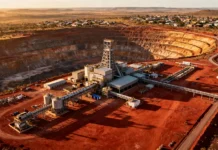On Wednesday, the price of copper dropped below $8,000 per tonne, marking its first decline since November, as the hopes for a rapid recovery in China’s economy diminish. Copper futures for delivery in July experienced a decrease of 2.74% on the Comex market in New York, reaching $3.55 per pound ($7,810 per tonne).
This month, the metal has fallen approximately 7% due to disappointing economic indicators from China, the largest consumer of copper. The previous gains achieved after the end of China’s COVID-19 lockdowns have been completely erased. To compensate for weak domestic demand, Chinese smelters have increased their exports, which have helped replenish inventories in other regions.
May is traditionally a slow month for industrial metals demand, and the demand for copper appears to be weak, particularly with poor orders from wire rod plants. The metals market has faced considerable pressure following the disappointing macro data from China in April, serving as a wake-up call to the underlying weakness. Forecasts predicting significant increases in raw material prices this year have not materialized as expected, with prices moving contrary to those forecasts.
Given this situation, analysts anticipate that commodities will experience a strong recovery if concerns about a recession turn out to be unfounded. If a recession is avoided, it is likely that oil and commodity prices, as well as interest rates, will rise, which could adversely affect equities. However, analysts predict that copper will return to $10,000 per tonne by this time next year.
The supply of copper is increasing as some challenges faced by key miners have eased. In March, First Quantum Minerals resolved a lengthy dispute with the Panamanian government, while a substantial stockpile of copper in the Democratic Republic of Congo, owned by China’s CMOC Group Ltd., is expected to enter the market after a dispute over royalties caused delays. Additionally, copper production in Peru experienced a surge in March as large mines resumed operations following disruptions caused by social protests.
The strengthening supply is already reflected in the rebound of London Metal Exchange (LME) inventories from their multi-year lows in the first quarter. BHP Group, Glencore, and Freeport-McMoRan witness declines in mining stocks, with BHP Group down by almost 4%, Glencore down by 4.5%, and Freeport-McMoRan down by 4.1% compared to the previous week.






















